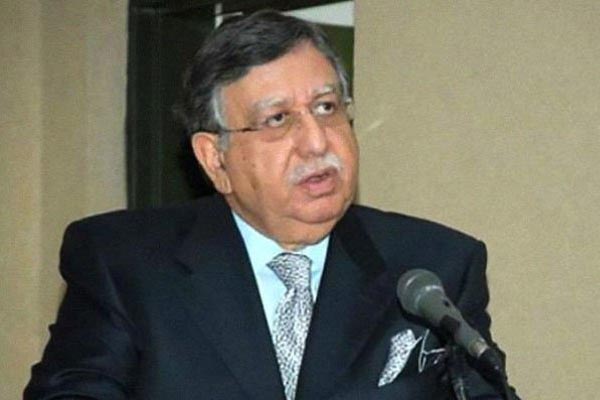
No Credit
Adviser to the P.M. on Finance blames speculators for rupee devaluation and claims economy is ‘overheating’ and growing faster than desired
Adviser to the P.M. on Finance Shaukat Tarin on Sunday warned that the government can no longer afford to provide any further relief in fuel prices to the public, stressing that any increases in the global market will now be directly passed onto consumers.
“There is no relief in it,” he said of prevailing local petroleum prices. “Whatever [price difference] comes will be passed through [to consumers],” he told media in Karachi after performing the groundbreaking ceremony of the Naya Nazimabad Hospital. Stressing that the government has already reduced sales tax on petrol on petrol from 17 percent to 1.6 percent, he said there was no more “space” for any more relief.
Petroleum prices in Pakistan are currently at a historic high of Rs. 145.82/liter, with authorities warning that another hike is on the way in the near future. Economic analysts have noted that this, coupled with ongoing devaluation of the Pakistani rupee and uncertainty over the International Monetary Fund’s loan facility are producing rampant inflation of all major commodities.
In his media interaction, Tarin reiterated that the public would soon receive “good news” about the IMF program, maintaining that a formal announcement of its resumption would end the current trend of speculative trading in the exchange market. The adviser has been predicting this “good news” for nearly a month now.
“Speculators are taking it [dollar] up,” he said, adding that the rupee is currently “undervalued,” which speculators have been profiting off. The prevailing real effective exchange rate—Pakistan’s cost of trade with the world—sits at around 93 or 94 points, he said, claiming this suggests “the rupee should stay around Rs. 166-170 these days.”
Additionally, he claimed, the Pakistani rupee is under pressure from Afghans buying up dollars in Pakistan and transferring them back home. “We have to fix it,” he emphasized.
The adviser predicted the rupee would “partially” recover against the U.S. dollar once the IMF announced the resumption of the loan program. “The speculators would take a hit once the IMF program resumes,” he claimed, adding that he had asked the State Bank of Pakistan to work toward preventing speculators from manipulating the market.
Economic growth
Tarin claimed the Pakistani economy could record growth of over 5 percent in the current fiscal, crediting this to revenue growth of 36 percent and manufacturing growth in “double digits.” He said the country had also reported bumper crops this year. Saying this growth was faster than that desired by authorities, he warned that the economy was overheating and needed to be curbed.
“We’ve taken measures to cool it down. We’ve increased duties. We have to take the temperature down to ease the pressure on the exchange rate,” he said.
The adviser also claimed that his team had negotiated “far better” terms with the IMF than had been negotiated by former finance minister Abdul Hafeez Shaikh in mid-March. “We’ve said no to the IMF on so many things,” he said, adding that he did not want to discuss this further as the IMF “doesn’t want commentary on it.”
Referring to the ongoing price hike of food items, he said this was partly due to global inflation resulting from the coronavirus pandemic. “The prices of food increased globally. Pakistan imports some important food items and our common citizens are affected due to the increase in prices,” he said, but admitted that Pakistanis have poor purchasing power in contrast to other countries. “We are trying to fix it,” he added.
Tarin also admitted that hoarding of commodities was taking place, leading to more inflation of food prices. He urged people to report such instances, adding they could be rewarded with up to 10 percent of the value of the confiscated items.
